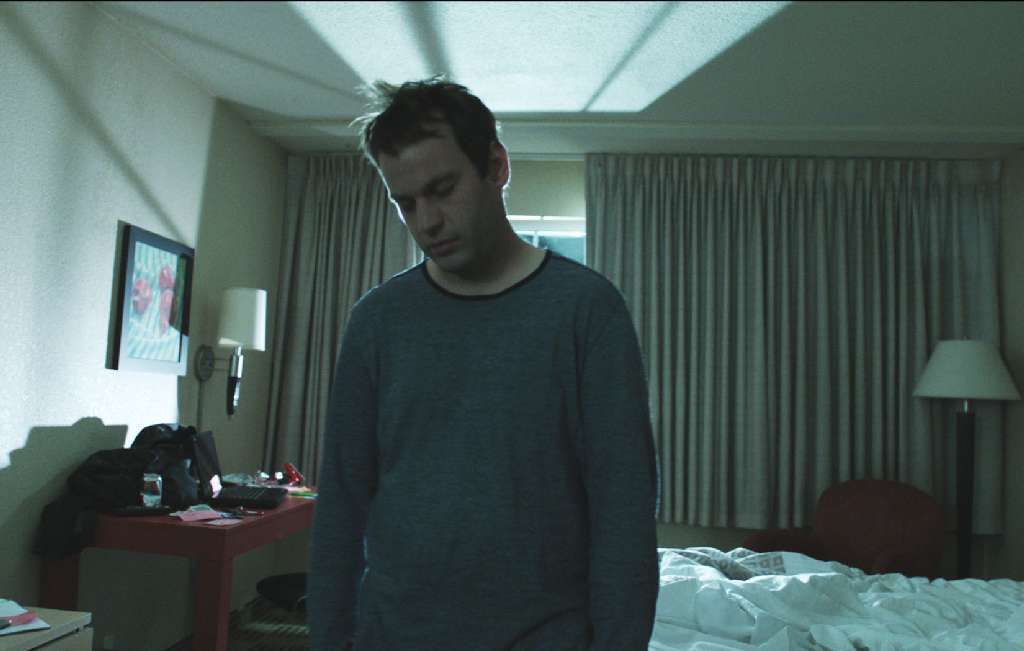Ever wondered if sleepwalking runs in the family? Can sleepwalking be hereditary? Well, let’s dive into this intriguing topic and uncover the truth behind the genetics of sleepwalking. Sleepwalking, also known as somnambulism, is a fascinating phenomenon that has puzzled scientists and intrigued the general population for centuries. From wandering aimlessly to carrying out complex tasks while still asleep, sleepwalking can be both amusing and concerning. So, let’s explore whether this peculiar behavior can be passed down from generation to generation.
Sleepwalking is often a topic of discussion, with many people wondering if it is hereditary. After all, if your parents or siblings have a history of sleepwalking, it’s only natural to question whether you might be prone to this nocturnal escapade as well. While there is no definitive answer, studies suggest that there may be a genetic component to sleepwalking. Researchers have identified specific genetic markers that are associated with an increased likelihood of sleepwalking, indicating that there may be a hereditary link. However, it’s important to note that genetics alone may not be the sole determining factor. Other factors such as sleep deprivation, stress, and certain medications can also contribute to the occurrence of sleepwalking episodes.
So, if you find yourself sleepwalking, don’t be too quick to blame it solely on your genetic makeup. Remember, sleepwalking is a complex phenomenon influenced by various factors. Whether it’s genetics, environmental factors, or a combination of both, understanding the causes and triggers of sleepwalking can help shed light on this mysterious behavior. So, let’s unravel the secrets of sleepwalking and discover what lies behind this intriguing sleep disorder.

Can Sleepwalking be Hereditary?
Sleepwalking, also known as somnambulism, is a sleep disorder that affects approximately 1-15% of the population. It is characterized by complex behaviors performed during sleep, such as walking, talking, and even driving, without the individual being aware of their actions. While the exact cause of sleepwalking is still unknown, researchers have found evidence to suggest that there may be a hereditary component to the disorder. In this article, we will explore the relationship between sleepwalking and genetics, as well as other factors that may contribute to the development of this sleep disorder.
The Link Between Sleepwalking and Genetics
Sleepwalking tends to run in families, suggesting that there may be a genetic predisposition to the disorder. Several studies have investigated the hereditary nature of sleepwalking and have found evidence to support this hypothesis. For example, a study published in the journal JAMA Pediatrics found that children with a parent who sleepwalks were three times more likely to develop the disorder themselves. Another study published in the journal Sleep Medicine observed that identical twins were more likely to both be sleepwalkers compared to non-identical twins, indicating a genetic influence.
However, it is important to note that not all cases of sleepwalking can be attributed solely to genetics. Other factors, such as environmental triggers and underlying medical conditions, can also play a role in the development of this sleep disorder. It is likely that sleepwalking is a complex condition that results from a combination of genetic and environmental factors.
Environmental Triggers for Sleepwalking
While genetics may predispose someone to sleepwalking, certain environmental triggers can also increase the likelihood of an episode. Stress, sleep deprivation, fever, and certain medications, such as sedatives and hypnotics, have been linked to an increased risk of sleepwalking. Additionally, disruptions in the sleep-wake cycle, such as shift work or jet lag, can also trigger episodes of sleepwalking. It is important to identify and manage these triggers to help reduce the frequency and severity of sleepwalking episodes.
Underlying Medical Conditions
In some cases, sleepwalking may be a symptom of an underlying medical condition. For example, sleep apnea, a sleep disorder characterized by pauses in breathing during sleep, has been associated with an increased risk of sleepwalking. Other conditions that can contribute to sleepwalking include restless leg syndrome, periodic limb movement disorder, and certain neurological disorders. Treating the underlying medical condition can often help alleviate sleepwalking episodes.
It is worth noting that sleepwalking tends to be more common in children, with many outgrowing the condition as they reach adolescence. However, in some cases, sleepwalking may persist into adulthood. If you or a loved one experiences frequent or disruptive sleepwalking episodes, it is important to consult with a healthcare professional for a proper diagnosis and appropriate treatment options.
Managing Sleepwalking Episodes
While there is no cure for sleepwalking, there are steps that can be taken to manage and reduce the frequency of episodes. Creating a safe sleep environment is crucial to prevent injuries during sleepwalking episodes. This can include removing obstacles from the sleepwalker’s path, locking windows and doors, and using baby gates to prevent access to stairs. Establishing a regular sleep schedule and practicing good sleep hygiene can also help minimize sleepwalking episodes.
In some cases, medication may be prescribed to help manage sleepwalking. Sedative medications, such as benzodiazepines, can help promote deeper sleep and reduce the likelihood of sleepwalking. However, these medications should only be used under the guidance of a healthcare professional, as they can have side effects and may not be appropriate for everyone.
Conclusion
In conclusion, while sleepwalking can be hereditary to some extent, it is a complex sleep disorder that can be influenced by various factors. Genetics may predispose individuals to sleepwalking, but environmental triggers and underlying medical conditions can also play a role. Understanding the potential genetic link to sleepwalking can help guide further research and improve our understanding of this intriguing sleep disorder. If you or a loved one experiences sleepwalking episodes, it is important to seek professional medical advice for proper diagnosis and management. With the right strategies and support, sleepwalking can be effectively managed, allowing individuals to enjoy restful nights and improved sleep quality.
Key Takeaways: Can sleepwalking be hereditary?
- Yes, sleepwalking can be hereditary.
- If one or both of your parents have a history of sleepwalking, you may be more likely to experience it too.
- Genetic factors play a role in sleepwalking, but it’s not the only factor.
- Environmental factors, like stress and sleep deprivation, can also contribute to sleepwalking.
- If you have concerns about sleepwalking, it’s best to consult a healthcare professional for an accurate diagnosis and guidance.
Frequently Asked Questions:
Is sleepwalking hereditary?
Many people wonder if sleepwalking can be passed down through generations. While there is no definitive answer, studies suggest that there may be a genetic component to sleepwalking. Some research has shown that individuals with a family history of sleepwalking are more likely to experience sleepwalking episodes themselves.
However, it is important to note that genetics is just one factor that can contribute to sleepwalking. Other factors such as stress, sleep deprivation, and certain medications can also play a role in the development of sleepwalking episodes.
What are the chances of inheriting sleepwalking?
The chances of inheriting sleepwalking can vary depending on the specific genetic factors involved. Research has indicated that individuals with a parent who sleepwalks have a higher risk of experiencing sleepwalking episodes themselves. In some cases, the risk can be as high as 60% if both parents are affected.
It is worth mentioning that having a family history of sleepwalking does not guarantee that an individual will also sleepwalk. It simply increases the likelihood of experiencing sleepwalking episodes. Other factors, such as environmental triggers and individual susceptibility, can also influence the chances of inheriting sleepwalking.
Can sleepwalking skip a generation?
While it is possible for sleepwalking to skip a generation, it is not uncommon for multiple generations within a family to experience sleepwalking. The inheritance pattern of sleepwalking is still not fully understood, as there can be variations in how the condition is passed down.
In some cases, a person may have a parent or grandparent who sleepwalks, but they themselves do not experience sleepwalking. This could be due to a combination of genetic and environmental factors that influence the development of sleepwalking.
What genes are associated with sleepwalking?
Several genes have been identified that may be associated with sleepwalking. One gene of interest is the CHRNA2 gene, which is involved in the regulation of certain neurotransmitters in the brain. Variations in this gene have been found in individuals who sleepwalk.
Other genes that have been linked to sleepwalking include the MEIS1 gene, which is involved in the development of the nervous system, and the TNF gene, which is involved in inflammation. However, more research is needed to fully understand the genetic factors that contribute to sleepwalking.
Can sleepwalking be prevented if it runs in the family?
While it may not be possible to completely prevent sleepwalking if it runs in the family, there are steps that can be taken to minimize the frequency and severity of sleepwalking episodes. Maintaining a regular sleep schedule, creating a relaxing bedtime routine, and ensuring a comfortable sleep environment can all help reduce the likelihood of sleepwalking.
If sleepwalking is a persistent issue, it may be helpful to consult with a healthcare professional who can provide further guidance and recommend strategies for managing sleepwalking episodes.
Hereditary Soundtrack – “Seance/Sleepwalking” – Colin Stetson
Final Summary: Is Sleepwalking Hereditary?
After exploring the fascinating topic of sleepwalking and its potential hereditary nature, it is clear that there is a strong link between genetics and sleepwalking tendencies. While not all cases of sleepwalking can be attributed to hereditary factors, research suggests that there is a genetic component that contributes to this sleep disorder.
Studies have shown that individuals with a family history of sleepwalking are more likely to experience episodes themselves. This suggests that certain genetic variations may increase the likelihood of sleepwalking. While the exact genes responsible have yet to be identified, ongoing research in this field aims to shed light on the specific genetic factors at play.
So, if you find yourself or a loved one engaging in sleepwalking, it may be worth considering your family history. While it’s not a guarantee that you will experience sleepwalking if it runs in your family, it does increase the likelihood. It’s always important to consult with a healthcare professional if you have concerns about sleepwalking or any other sleep-related issues.
In conclusion, sleepwalking can indeed be hereditary to some extent. While there is still much to learn about the genetic basis of this sleep disorder, the evidence suggests that family history plays a role. By understanding the potential hereditary factors behind sleepwalking, we can better address and manage this condition for those who experience it.


